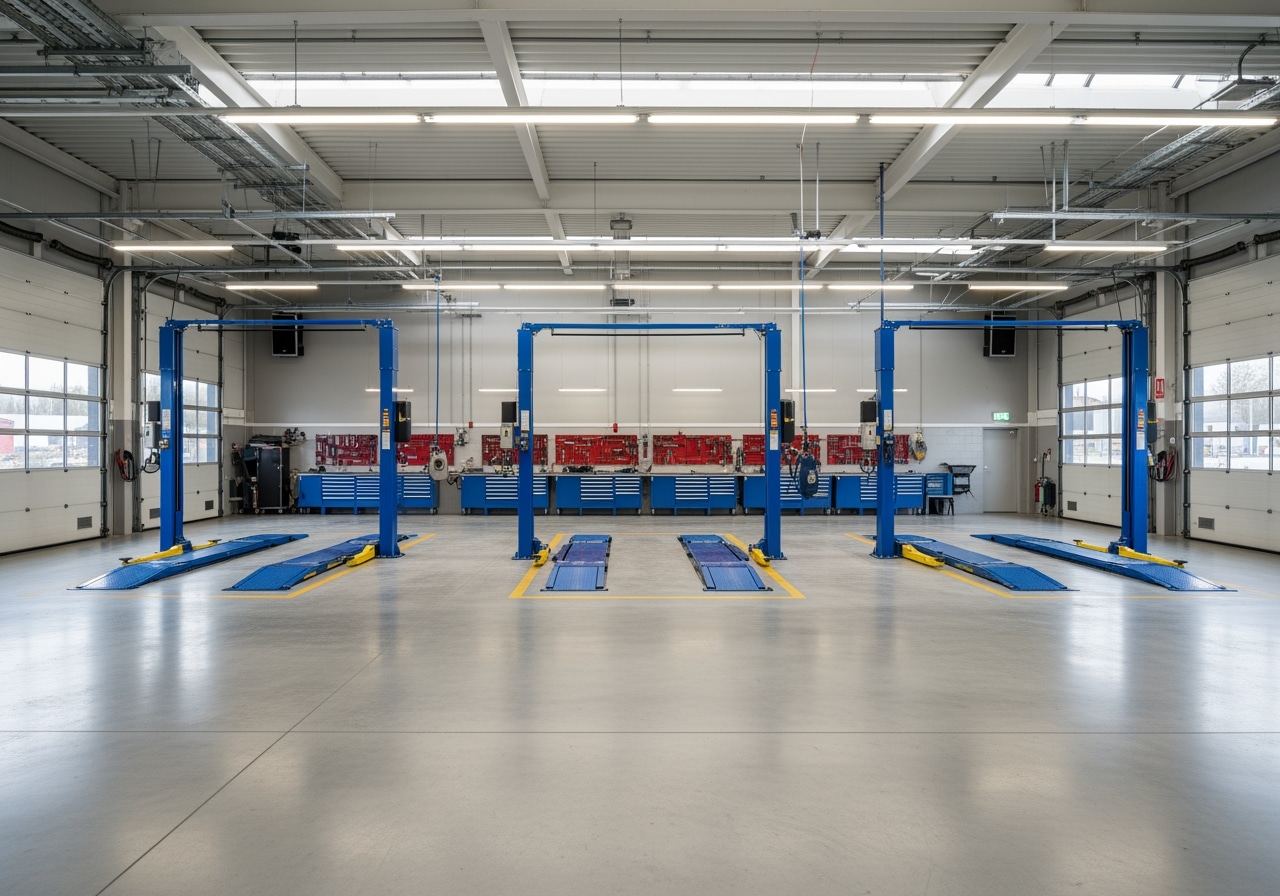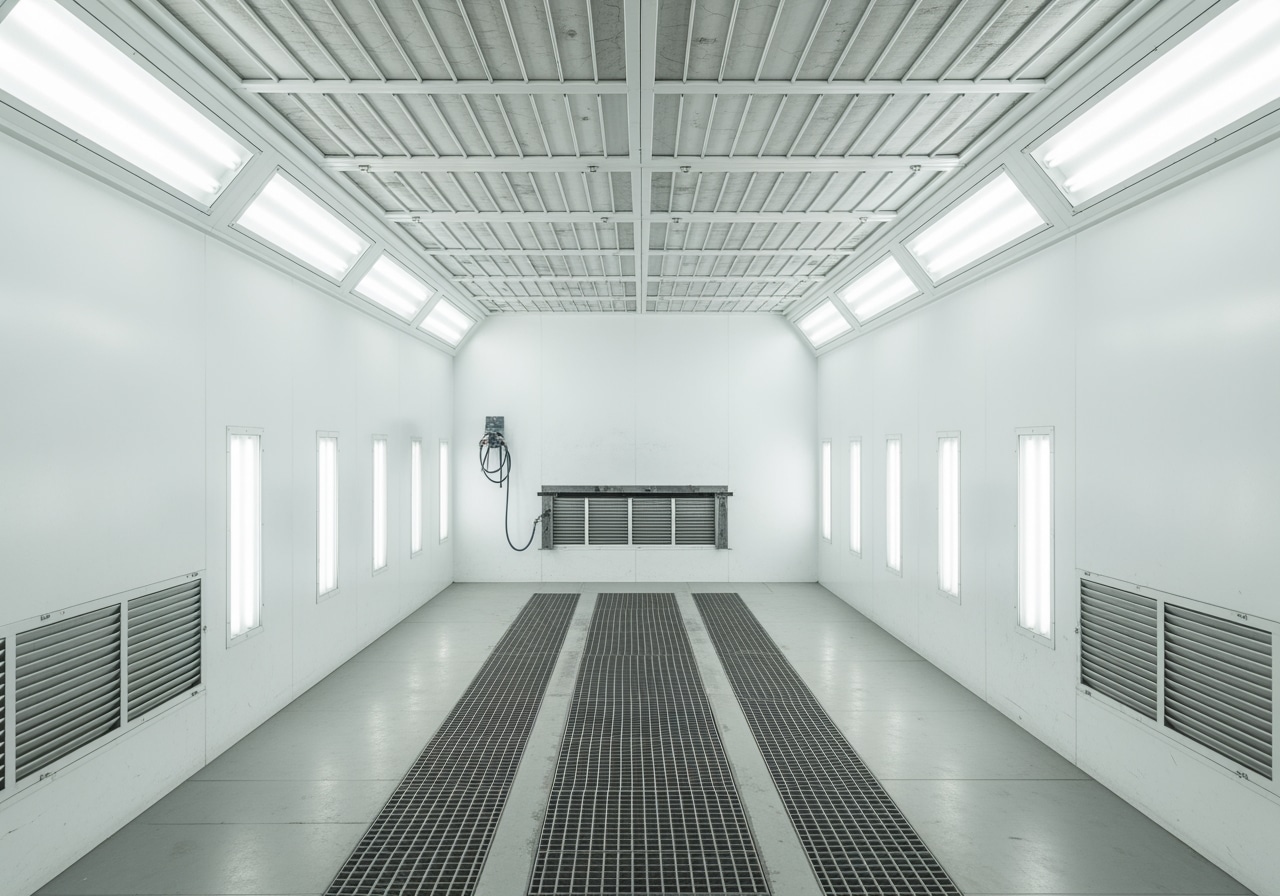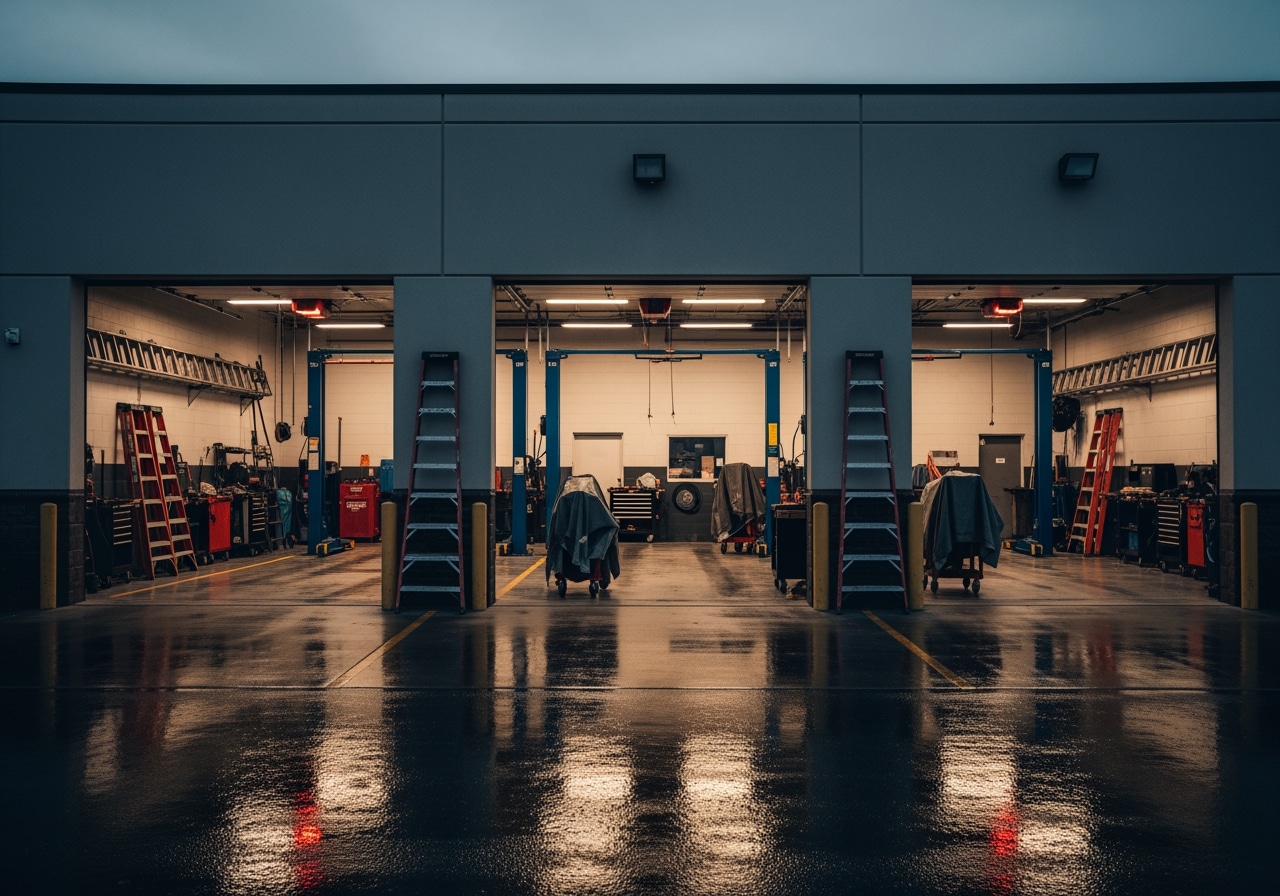Auto Body Shop for Rent Near Me

Auto Body Shop
For Rent.
Understanding professional auto body shop facility standards, equipment requirements, and operational needs. Race Track Auto Center demonstrates industry best practices for collision repair facilities in Houston.
Years Experience
Certified Facility
Code Compliant
What Makes a Professional Auto Body Shop?
Understanding professional auto body shop standards helps evaluate potential rental facilities and operational requirements. A quality auto body shop requires specialized infrastructure, equipment, and environmental controls that differ significantly from basic garage spaces.
At Race Track Auto Center, our facility demonstrates the professional standards necessary for quality auto body work. Our Houston location at 9840 Westpark Dr showcases the infrastructure requirements including proper ventilation, electrical capacity, and space configuration needed for professional collision repair services.
Professional auto body facilities must comply with safety regulations, environmental standards, and operational requirements that support quality collision repair work and protect both workers and customers.
Facility Infrastructure
Essential physical requirements for professional auto body operations.
- Paint booth systems
- Ventilation/HVAC
- Electrical capacity
- Floor load rating
Equipment Requirements
Professional equipment needed for quality collision repair.
- Frame machines
- Vehicle lifts
- Spray equipment
- Diagnostic tools
Compliance & Standards
Regulatory requirements for legal operation.
- Environmental permits
- Safety codes
- Zoning approval
- Insurance requirements
“A professional auto body shop requires more than just space—it needs proper ventilation systems, electrical capacity, and compliance with environmental regulations. The facility infrastructure directly impacts repair quality and safety.”
6 Essential Facility Requirements
Key elements that define a professional auto body shop facility.
Space & Layout
Minimum 5,000+ sq ft with proper bay configuration, workflow design, and room for equipment.
Paint Booth System
Climate-controlled spray booth with proper ventilation, filtration, and curing systems.
Electrical Capacity
400A+ service with proper grounding for frame machines, lifts, and diagnostic equipment.
Ventilation & HVAC
Proper air exchange, humidity control, and temperature management for quality work.
Floor & Structure
Reinforced concrete floors rated for heavy equipment and vehicle lifts installation.
Permits & Compliance
Environmental permits, zoning approval, fire safety, and insurance requirements met.
Benefits of Proper Shop Setup
Professional facility standards directly impact repair quality, efficiency, and business success.
Superior Repair Quality
Proper equipment and environment enable consistent, high-quality collision repairs.
Operational Efficiency
Well-designed workflow and equipment placement maximize productivity.
Regulatory Compliance
Proper permits and environmental controls avoid fines and operational issues.
Worker Safety
Proper ventilation and safety systems protect employees and reduce liability.

Standards
Houston Market & Facility Factors
Humidity Control
Houston’s high humidity requires superior climate control for quality paint work and corrosion prevention.
Temperature Management
Extreme Texas heat demands robust HVAC systems for worker comfort and paint curing requirements.
Flood Zone Awareness
Houston flooding risk affects facility location, insurance costs, and equipment protection planning.
Market Competition
Houston’s large market supports auto body shops but requires strategic location and service positioning.
Need professional collision repair from a properly equipped facility? We’re ready to help.
Professional vs. Basic Shop Setup
Why facility quality matters for collision repair results.
Basic Garage Setup
- check Lower initial cost
- remove Limited equipment
- remove No paint booth
- remove Compliance issues
- remove Quality limitations
- remove Insurance problems
Professional Facility
- check Complete equipment
- check Climate-controlled booth
- check Frame straightening
- check Full compliance
- check Insurance approved
- check Professional results
What Houston Drivers Say
“You can tell Race Track has a professional setup—climate-controlled paint booth, proper equipment, everything organized. The quality of their work reflects their facility investment.”
“I checked out several body shops before choosing Race Track. Their facility is clearly professional—proper paint booth, frame equipment, clean workspace. The results matched the setup.”
“As someone who looked into opening a body shop, I appreciate what Race Track has invested in their facility. Proper equipment makes all the difference in repair quality.”
Proudly Serving Greater Houston
Our professional facility serves drivers throughout the Houston metropolitan area.
Westpark
Galleria
Memorial
Bellaire
Meyerland
River Oaks
West University
Midtown
Heights
Montrose
Sugar Land
Katy
Need Professional Body Work?
Visit our fully-equipped facility at 9840 Westpark Dr.
Professional Shop Requirements
| Requirement | Minimum Standard | Professional Standard | Houston Notes |
|---|---|---|---|
| Space | 3,000 sq ft | 5,000+ sq ft | Room for growth |
| Ceiling Height | 12 feet | 16+ feet | Lift clearance |
| Electrical | 200A service | 400A+ service | Equipment demands |
| Ventilation | Code minimum | Paint booth system | Humidity control |
3,000 sq ft
5,000+ sq ft
Room for growth
12 feet
16+ feet
Lift clearance
200A
400A+
Equipment demands
Code minimum
Paint booth
Humidity control
Common Questions
Answers to frequent auto body facility questions.
What equipment is essential for a professional auto body shop?
expand_more
What permits are required for an auto body shop in Houston?
expand_more
How much space is needed for a professional auto body shop?
expand_more
Why does facility quality matter for collision repair?
expand_more

Where to Find Us
Experience the difference a professional facility makes. Our fully-equipped shop delivers quality collision repair with proper equipment and expert technicians.

